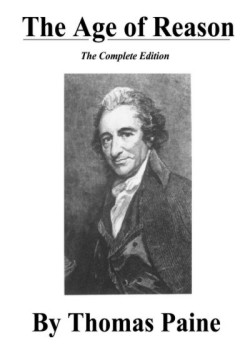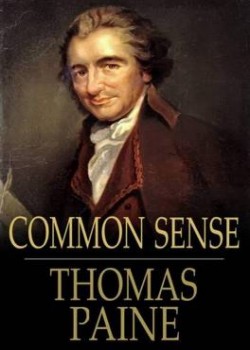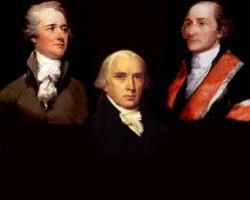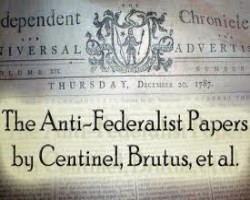HISTORY OF THE REVOLUTION AND OF THE CONFEDERATION
CHAPTER II
ORIGIN OF THE CONFEDERATION
§ 219. It is not surprising, therefore, that a project, which, even in their colonial state, had been so often attempted by some of them to guard themselves against the evils incident to their political weakness and their distance from the mother country, and which had been so often defeated by the jealousy of the crown, or of the colonies, should have occurred to the great and wise men, who assembled in the Continental Congress at very early period.
§ 220. It will be an instructive and useful lesson to us to trace historically the steps, which led to the formation and final adoption of the articles of confederation and perpetual union between the United States. It will be instructive, by disclosing the real difficulties attendant upon such a plan, even in times, when the necessity of it was forced upon the minds of men not only by common dangers, but by common protection; by common feelings of affection, and by common efforts of defence. It will be useful, by moderating the ardour of inexperienced minds, which are apt to imagine, that the theory of government is too plain, and the principles, on which it should be formed, too obvious, to leave much doubt for the exercise of the wisdom of statesmen, or the ingenuity of speculatists. Nothing is indeed more difficult to forsee, than the practical operation of given powers, unless it be the practical operation of restrictions, intended to control those powers. It is a mortifying truth, that if the possession of power sometimes leads to mischievous abuses, the absence of it also sometimes produces a political debility, quite as ruinous in its consequences to the great objects of civil government.
§ 221. It is proposed, therefore, to go into an historical review of the manner of the formation and adoption of the articles of confederation. This will be followed by an exposition of the general provisions and distributions of power under it. And this will naturally lead us to a consideration of the causes of its decline and fall; and thus prepare the way to a consideration of the measures, which led to the origin and final adoption of the present constitution of the United States.
§ 222. On the 11th of June, 1776, the same day, on which the committee for preparing the declaration of independence was appointed, congress resolved, that "a committee be appointed to prepare and digest the form of a confederation to be entered into between these colonies; " and on the next day a committee was accordingly appointed, consisting of a member from each colony. Nearly a year before this period, (viz. on the 21st of July, 1775,) Dr. Franklin had submitted to congress a sketch of articles of confederation, which does not, however, appear to have been acted on. These articles contemplated a union, until a reconciliation with Great Britain and on failure thereof, the confederation to be perpetual.
§ 223. On the 12th of July, 1776, the committee, appointed to prepare articles of confederation, presented a draft, which was in the hand-writing of Mr. Dickenson, one of the committee, and a delegate from Pennsylvania The draft, so reported, was debated from the 22d to the 31st of July, and on several days between the 5th and 20th of August, 1776. On this last day, congress, in committee of the whole, reported a new draft, which was ordered to be printed for the use of the members.
§ 224. The subject seems not again to have been touched until the 8th of April, 1777, and the articles were debated at several times between that time and the 15th or November of the same year. On this last day the articles were reported with sundry amendments, and finally adopted by congress. A committee was then appointed to draft, and they accordingly drafted, a circular letter, requesting the states respectively to authorize their delegates in congress to subscribe the same in behalf or the state. The committee remark in that letter, "that to form a permanent union, accommodated to the opinions 'and wishes of the delegates of so many states, differing in habits, produce, commerce, and internal police, was found to be a work, which nothing but time and reflection, conspiring with a disposition to conciliate, could mature and accomplish. Hardly is it to be expected, that any plan, in the variety of provisions essential to our union, should exactly correspond with the maxims and political views of every particular state. Let it be remarked, that after the most careful inquiry and the fullest information, this is proposed, as the best, which could be adopted to the circumstances of all, and as that alone, which affords any tolerable prospect of general ratification. Permit us, then, (add the committee,) earnestly to recommend these articles to the immediate and dispassionate attention of the legislatures of the respective states. Let them be candidly reviewed under a sense of the difficulty of combining, in one general system, the various sentiments and interests of a continent, divided into so many sovereign and independent communities, under a conviction of the absolute necessity of uniting all our councils, and all our strength, to maintain and defend our common liberties, Let them be examined with a liberality becoming, brethren and fellow citizens, surrounded by the same imminent dangers, contending for the same illustrious prize, and deeply interested in being for ever bound, and connected together, by ties the most intimate and indissoluble. and finally, let them be adjusted with the temper and magnanimity of wise and patriotic legislators, who, while they are concerned for the prosperity of their own more immediate circle, are capable of rising superior to local attachments, when they may be incompatible with the safety, happiness, and glory of the general confederacy."
§ 225. Such was the strong and eloquent appeal made to the states. It carried, however, very slowly conviction to the minds of the local legislatures. Many objections were stated; and many amendments were proposed. All of them, however, were rejected by congress, not probably because they were all deemed inexpedient or improper in themselves; but from the danger of sending the instrument back again to all the states, for reconsideration. Accordingly, on the 26th of June, 1778, a copy, engrossed for ratification, was prepared, and the ratification begun on the 9th day of July following. It was ratified by all the states, except Delaware and Maryland, in 1778; by Delaware in 1779, and by Maryland on the first of March, 1781, from which last date its final ratification took effect, and was joyfully announced by congress.
§ 226. In reviewing the objections, taken by the various states to the adoption of the confederation in the form, in which it was presented to them, at least so far as those objections can he gathered from the official acts of those states, or their delegates in congress, some of them will appear to be founded upon a desire for verbal amendments conducing to greater accuracy and certainty; and some of them, upon considerations of a more large and important bearing, upon the interests of the states respectively, or of the Union. Among the latter were the objections taken, and alterations proposed in respect to the apportionment of taxes, and of the quota of public forces to be raised among the states, by Massachusetts, Connecticut, New- Jersey, and Pennsylvania. There was also an abundance of jealousy of the power to keep up a standing army in time of peace.
§ 227. But that, which seemed to be of paramount importance, and which, indeed, protracted the ratification of the confederation to so late a period, was the alarming controversy in respect to the boundaries of some of the states, and the public lands, held by the crown, within these reputed boundaries. On the one hand, the great states contended, that each of them had an exclusive title to all the lands of the crown within its boundaries; and these boundaries, by the claims under some Or the charters, extended to the South sea, or to an indefinite extent into the uncultivated western wilderness. On the other hand, the other states as strenuously contended, that the territory, unsettled at the commencement of the war, and claimed by the British crown, which was ceded to it by the treaty of Paris of 1763, if wrested from the common enemy by the blood and treasure of the thirteen states, ought to be deemed a common property, subject to the disposition of congress for the general good. Rhode Island, Delaware, New-Jersey, and Maryland insisted upon some provision for establishing the western boundaries of the states; and for the recognition of the unsettled western territory, as the property of the Union.
§ 228. The subject was one of a perpetually recurring, interest and irritation; and threatened a dissolution of the confederacy. New-York, at length, in February, 1780, passed an act, authorizing a surrender of a part of the western territory claimed by her. Congress embraced the opportunity, thus afforded, to address the states on the subject of ceding, the territory, reminding them, "how indispensably necessary it is to establish the federal union on a fixed and permanent basis, and on principles, acceptable to all its respective members; how essential to public credit and confidence, to the support of our army, to the vigor of our councils, and the success of our measures; to our tranquility at home, our reputation abroad; to our very existence, as a free, sovereign, and independent people." They recommended, with earnestness, a cession of the western territory; and at the same time, they as earnestly recommended to Maryland to subscribe the articles of confederation. A cession was accordingly made by the delegates of New York on the first of March, 1781, the very day, on which Maryland acceded to the confederation. Virginia had previously acted upon the recommendation of congress; and by subsequent cessions from her, and. from the states of Massachusetts, Connecticut, South Carolina, and Georgia, at still later periods, this great source of national dissension was at last dried up.







The most important project on this website is "THE WORKS."
This is the place where you can read the words of the founding fathers and those who had a VERY BIG part in the founding of this country.
Not only do we have the Federalist and the Anti-Federalist Papers, but we also have other Constitutional Commentaries that were written shortly after the Constitution was ratified.